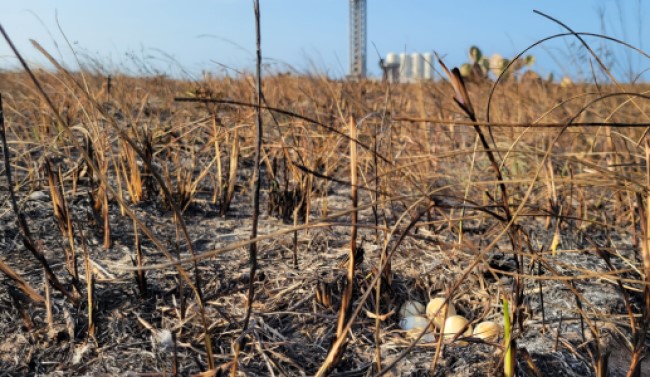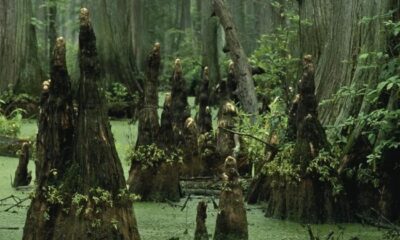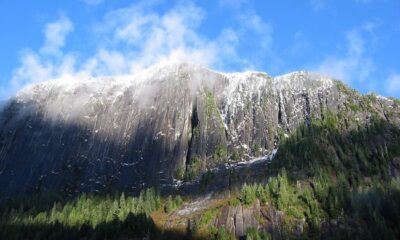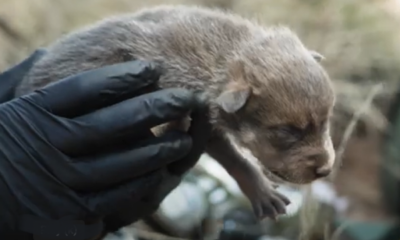Uncategorized
Green Groups Sue FAA Over SpaceX Rocket Launches

Photo by Justin LeClaire/Coastal Bend Bays & Estuaries Program (CBBEP)
Here we go again: Technological progress and environmentalism unfortunately at odds.
Following a massive rocket explosion in South Texas, a combination of five national and local environmental groups and the Carrizo/Comecrudo Nation of Texas, Inc. sued the Federal Aviation Administration (FAA) for failing to create an effective plan to protect the area surrounding the SpaceX Starship/Super Heavy launch program at Boca Chica from damage. The story is largely about conservation, but there’s more to it than that, including access to public beaches … and to lands deeded to the local Indian nations. The groups that are suing include the Center for Biological Diversity, American Bird Conservancy, Surfrider Foundation, Save RGV, and the Carrizo/Comecrudo Nation of Texas, Inc.
Problem Number One: Habitat damage
The launch site sits next to prime habitat for protected species and migratory birds, like the Kemp’s Ridley Sea Turtle and the Piping Plover. The first rocket to be launched from the site as part of the program exploded on April 20, showering the surrounding area with particulate matter.
The agency permitted SpaceX to launch 20 Starship/Super Heavy rockets each year for the next five years. They are the largest rockets ever made, and they are being launched right next to crucial habitat, putting imperiled wildlife at great risk and harming community interests. Despite acknowledging the harm from SpaceX construction and launch activities, the FAA decided to forego a full environmental review, claiming the damages would not be “significant” due to proposed mitigation measures.
Today’s lawsuit argues that the proposed mitigation by the agency isn’t enough to prevent the launch program from causing significant environmental harm. The agency hasn’t explained how mitigation would address and prevent rocket explosions and fires that could wipe out neighboring habitat. The suit calls for a full environmental analysis to truly protect Threatened and Endangered species and ensure public beach access for all people.
“It’s vital that we protect life on Earth even as we look to the stars in this modern era of spaceflight,” said Jared Margolis, a senior attorney at the Center for Biological Diversity. “Federal officials should defend vulnerable wildlife and frontline communities, not give a pass to corporate interests that want to use treasured coastal landscapes as a dumping ground for space waste.”
SpaceX’s Boca Chica launch site is surrounded by state parks, National Wildlife Refuge lands, and important habitat for imperiled wildlife, including Piping Plovers, Northern Aplomado Falcons, Gulf Coast Jaguarundi, Ocelots and Critically Endangered sea turtles. Rocket launches and explosions cause significant harm through increased vehicle traffic and the intense heat, noise, and light pollution from construction and launch activities. Rocket explosions spread debris across surrounding habitat and have caused brush fires.
The Boca Chica area is one of the most biologically diverse regions in North America. Bird species from both the Central and Mississippi flyways converge there, making it an essential wintering and stopover habitat for migratory birds as they move north and south each year. Shorebirds are showing the most dramatic population declines out of any group of birds. It is also one of the few places where the Kemp’s Ridley Sea Turtle — the most Critically Endangered sea turtle in the world — comes ashore to nest on refuge beaches in the spring and summer.
“By now, most people know that birds are in serious decline — and shorebirds like those that rely on Boca Chica are among the fastest-disappearing,” said Michael J. Parr, president of American Bird Conservancy. “Overall, we’ve lost nearly 3 billion birds from the United States and Canada since 1970. At what point do we say, ‘Space exploration is great, but we need to save habitats here on Earth as a top priority?’ For the sake of future generations, let’s protect the healthy habitats we have left instead of treating them as waste places for pollution and fuselages.”
Problem Number Two: Public-lands access to the public
The SpaceX Starship/Super Heavy project also greatly reduces the public’s ability to access and enjoy the refuge and park lands adjacent to the project site. This includes Boca Chica State Park and Beach, a popular public beach on an 8-mile stretch of sand.
It is one of the few undeveloped, no-cost public beaches in the area, and the closest to the city of Brownsville. The project would close the only public roadway connecting surrounding communities to the Boca Chica area for up to 800 hours annually, severely hindering the public and local communities from accessing the beach and important public trust resources.
“Eight hundred hours of closure fly in the face of the Texas Open Beaches Act, the state constitution, and Texans’ rights to free and unrestricted access to Texas beaches,” said Sarah Damron, senior regional manager for the Surfrider Foundation. “That’s the equivalent of 20, 40-hour work weeks every year that Texans and visitors will be deprived of access to Boca Chica Beach. What’s worse is that these closures can happen at almost any time with little to no notice to the public, so the beach, park lands and refuge lands are ostensibly closed to anyone who needs to make plans. This is an unacceptable loss to area residents and to the people of Texas.”
Problem Number Three: Indian Burial Grounds (and they wonder why these rockets keep exploding)!
These closures have a significant impact on the local community, including the Carrizo/Comecrudo Nation’s ability to hold traditional ceremonies and leave offerings for their ancestors.
“The Carrizo/Comecrudo people’s sacred lands are once again being threatened by imperialist policies that treat our cultural heritage as less valuable than corporate interests,” said Juan Mancias, tribal chair of the Carrizo/Comecrudo Nation of Texas, Inc. “Boca Chica is central to our creation story. But we have been cut off from the land our ancestors lived on for thousands of years due to SpaceX, which is using our ancestral lands as a sacrifice zone for its rockets.”
Rockets explode frequently at the Boca Chica site, with at least eight exploding over the past five years. The agency expects that many more explosions will occur over the next five years. This puts people and wildlife at great risk, as shown by a recent fire caused by a Super Heavy rocket explosion that burned 68 acres of the adjacent national wildlife refuge, and another fire that burned 150 acres in July 2019.
“The administration’s failure to fully analyze the dangers of a rocket test launch and manufacturing facility mere steps from the Lower Rio Grande National Wildlife Refuge and two state parks is an astonishingly bad decision,” Mary Angela Branch, board member at Save RGV. “So many Threatened and Endangered species are counting on the agency to get this right.”
What do you readers think? Is the progress being made by SpaceX worth the price, or is this lawsuit the right thing for America? Sound off in the comments!
-

 Hunting2 months ago
Hunting2 months agoDrain the Swamp: Corruption Scandal at Washington State’s Fish & Wildlife
-

 Adventure3 weeks ago
Adventure3 weeks agoDoes the “Big Beautiful Bill” Have a Public-Lands Wart?
-

 Adventure1 month ago
Adventure1 month agoHowling in Cuckoo: How Mexican Wolves are Fostered
-

 Gear4 days ago
Gear4 days agoLet Freedom RING! Primary Arms’ Independence Day Category Sale Starts NOW
-

 Adventure2 months ago
Adventure2 months agoGoing Rodeo! BANISH Named the Professional Rodeo Cowboys’ Official Suppressor
-

 Adventure2 weeks ago
Adventure2 weeks agoU.S. Bighorn Sheep Going Home to Canada
-

 Adventure4 weeks ago
Adventure4 weeks agoYour Dream Hunt Could Be a Movie & Leupold Can Help
